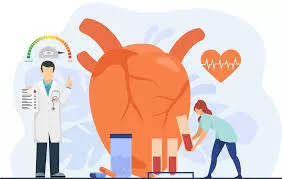Hypertension is a condition where the force of blood against the arteries is high that is blood pressure from 140/90mm/Hg and above. It’s also known as high blood pressure. A blood pressure reading of 180/120mm/Hg and above is considered a hypertensive emergence thus medical intervention is needed. It is determined by the amount of blood the heart pumps and how fast the blood moves in the arteries. Untreated hypertension poses a threat to one health as it can lead to stroke or a heart attack. Blood pressure can be categorized as:
- Normal blood pressure which is anything between 120/80mm/Hg or lower.
- High/ elevated blood pressure – the systolic reading is 120-129mm/Hg while the diastolic reading is less than 80mm/Hg.
- Stage 1 hypertension- systolic reading is between 130-139mm/Hg while the diastolic reading is 80-89mm/Hg
- Stage 2 hypertension- the systolic reading is from140 and above while the diastolic reading is from 90 and above
Types of Hypertension
- Essential hypertension which is also known as primary hypertension. There is no known cause but it develops gradually with time.
- Secondary hypertension develops due to underlying conditions like:
- Problems associated with the thyroid.
- Kidney disease.
- Congenital heart defects.
- Some medications e.g. birth control pills.
- Use of illegal drugs.
Symptoms
Some people may have high blood pressure for a long period of time with no symptoms while others may experience:
- Headaches.
- Shortness of breath.
- Nose bleeding.
- Dizziness.
- Chest pain.
- Blurry vision.
Risk factors
- Family history.
- Age.
- Lack of exercise.
- Overweight and obesity.
- Stress.
- Pregnancy.
- Taking too much alcohol.
- Some chronic conditions e.g. diabetes.
- Use of tobacco products.
- Taking foods with high amounts of sodium.
Complications of hypertension
- Heart attack due to thickening and hardening of arteries.
- Kidney problems when blood vessels in the kidney become weak.
- Eye problems can lead to loss of vision when blood vessels in the eye are damaged.
- Memory loss.
- Dementia where blood flow to the brain is limited due to blocked arteries.
- A metabolic syndrome where the body is not able to break down glucose can lead to the development of diabetes.

Diagnosis
- Ambulatory monitoring is where blood pressure level is checked for a period of 6 or more hours.
- Laboratory tests like blood sugar levels or a urine test to check why blood pressure may be high.
- Electrocardiogram is a measure of the heart’s electrical activity.
- Echocardiogram where waves are used to create detailed images of a beating heart thus showing the flow of blood flow throughout the heart.
Mnagement of hypertension
- Eating a balanced diet that has fruits and vegetables.
- Control alcohol consumption.
- Regular doing of exercises to ensure one stays fit and control weight.
- No smoking.
- Getting enough sleep.
- Medications e.g diuretics, vasodilators. The type of medication given depends on the level of one’s blood pressure.
- Manage stress.
- Public Universities in Kenya
- List of best private primary schools in Kirinyaga County.
- Egerton university, fees, location, courses.
- List of Accredited Private Universities in Kenya
- The best private primary schools in Nyeri county.
- Kenya Medical Training College, courses, requirements.
- Mount Kenya University history, fees, courses